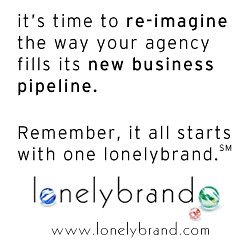
What is Twitter? What is Twitter good for? How do you use Twitter? Why is Twitter so popular? How does a company use Twitter? How do you make money with Twitter?
Each day more people around the world are asking questions about Twitter. It's on the news, in local papers, and on business cards. Today, one of the top trending topics was #definetwitter. I have taken some of my favorite responses and posted them here to help you understand a little more about what makes Twitter so special.
You can find me on Twitter @ADMAVEN
Each day more people around the world are asking questions about Twitter. It's on the news, in local papers, and on business cards. Today, one of the top trending topics was #definetwitter. I have taken some of my favorite responses and posted them here to help you understand a little more about what makes Twitter so special.
You can find me on Twitter @ADMAVEN
richardpeacock : #definetwitter The only religion that answers back
Posted at 11:02 - View Tweet - Reply
wasatchwoman : a distraction from work...and a resource for my mag content. #definetwitter
Posted at 11:06 - View Tweet - Reply
JanetGomez : Twitter is about sharing with peeps you'll maybe never meet in person but with whom you feel a connection #definetwitter
Posted at 10:56 - View Tweet - Reply
Tom_Sweatman : Twitter is a perpetual regurgitation of mass perspective. #definetwitter
Posted at 10:51 - View Tweet - Reply
robert_brady : @unmarketing #definetwitter Twitter is whatever you can make it and whatever you want it to be. Why pigeonhole it?
Posted at 10:17 - View Tweet - Reply
LifeCoachMary : #definetwitter Twitter to me is like a virtual office cubicles by day. I can look over the virtual wall to get inspired, chat or learn.
Posted at 11:17 - View Tweet - Reply
eExecutives : Twitter is a place I can get and share ideas, insights, and fun just as they pop up... no lines, no waiting! #definetwitter
Posted at 11:27 - View Tweet - Reply
leximo : RT: @unmarketing: Twitter is where adults can type LOL and not be judged by their kids. #definetwitter
Posted at 10:54 - View Tweet - Reply
lachenmayer : Twitter is a great place to ask questions #definetwitter
Posted at 11:53 - View Tweet - Reply
AbbieF : Twitter is a buffet of information, take as much or as little as you want, as often as you want. #definetwitter
Posted at 12:59 - View Tweet - Reply
PEOPLE WHO READ THIS ARTICLE ALSO READ:
> Book Review: Word of Mouth Marketing: How Smart Companies Get People Talking - Revised Edition by Andy Sernovitz
> Book Review: The Nature of Marketing: Marketing to the Swarm as well as the Herd by Chuck Brymer
> Facebook Reverts to Previous Terms of Service (TOS), No Longer Owns You.
PEOPLE WHO READ THIS ARTICLE ALSO READ:
> Book Review: Word of Mouth Marketing: How Smart Companies Get People Talking - Revised Edition by Andy Sernovitz
> Book Review: The Nature of Marketing: Marketing to the Swarm as well as the Herd by Chuck Brymer
> Facebook Reverts to Previous Terms of Service (TOS), No Longer Owns You.














